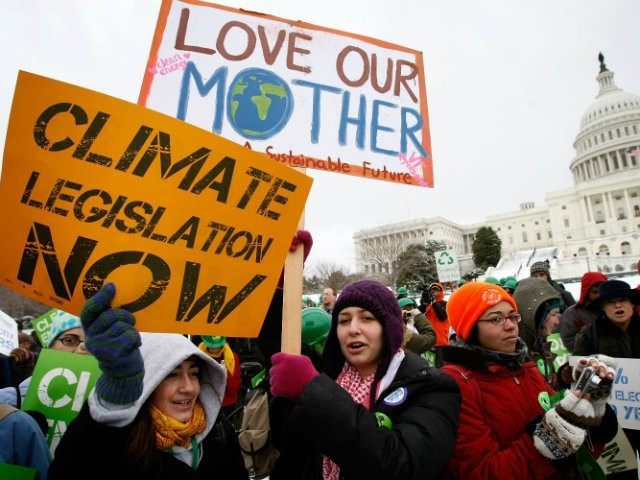British people are among the least concerned Europeans when it comes to claims of climate change, according to a survey of 40 countries by the Pew Research Centre. A bare 20 per cent of Brits surveyed are “very worried” about the prospect of impending climate doom, just ahead of caution-to-the-wind Poles who came in at 19 per cent.
Climate change scepticism is not just restricted to the UK and Poland. Israelis (30 per cent) and Russians (26 per cent) are also more likely to say that climate change is not a serious concern along with Australians.
At the other end of the scale, 86 per cent of Brazilians issue is a very serious threat.
Around the world, most of those surveyed believe global climate change is a pressing concern. A median of 54 per cent across the nations surveyed say it is a very serious problem, while 85 per cent say it is at least a somewhat serious problem.
The chart below shows a nation-by-nation comparison.
The survey has been released just weeks before organisers of the UN-sponsored Cop21 climate conference in Paris host an event they confidently claim will produce a new roadmap to stop “catastrophic global warming”. The Nov. 30-Dec. 11 conference will attract some 80 heads of state including U.S. President Barack Obama.
No doubt they will note that concern over climate change is especially high in Latin America, where a median of 74 per cent think it is a very serious problem.
Roughly six-in-ten or more in every Latin American nation surveyed report substantial concerns about climate change. In Brazil, 86 per cent believe climate change is a very serious concern. Three-quarters or more in Chile (77 per cent) and Peru (75 per cent) express very serious worries about the threat of global warming.
Europeans are, on average, somewhat less concerned about climate change; still, a median of 54 per cent say it poses a very serious problem. More than half of French (56 per cent), Italians (55 per cent), Germans (55 per cent) and Spanish (53 per cent) express substantial concerns, but just 19 per cent of Poles consider global climate change a critical issue.
 In the U.S., 45 per cent believe global climate change is a very serious problem. One-in-four Americans do not consider climate change to be a serious problem, one of the highest shares of all the nations surveyed. Only Israelis (30 per cent) and Russians (26 per cent) are more likely to say that climate change is not a serious concern.
In the U.S., 45 per cent believe global climate change is a very serious problem. One-in-four Americans do not consider climate change to be a serious problem, one of the highest shares of all the nations surveyed. Only Israelis (30 per cent) and Russians (26 per cent) are more likely to say that climate change is not a serious concern.
As to what must be done to address those concerns, most climate doomsayers in the countries surveyed say rich nations should do more than developing nations to address climate change (see right).
While those surveyed in both rich and poor nations are generally supportive of their own governments taking action to curb greenhouse gas emissions, in principle many people believe that wealthy societies, not poor economies, should take on more of the responsibility for addressing the issue.
A median of 54 per cent agree with the statement “Rich countries, such as the U.S., Japan and Germany, should do more than developing countries because they have produced most of the world’s greenhouse gas emissions so far.”
A median of just 38 per cent think “developing countries should do just as much as rich countries because they will produce most of the world’s greenhouse gas emissions in the future.”
Notably, the U.S. is among a small group of countries in which half or more believe developing countries should do just as much – half of Americans hold this view, while only four-in-ten want rich countries to shoulder more of the costs.
Some of the greatest support for wealthier societies doing more is found in relatively poor economies that are not major sources of emissions.
Those surveyed in the Philippines (73 per cent), Ghana (64 per cent) and Tanzania (64 per cent) say rich countries should do more.
Among the major polluters, 58 per cent of the Russians say that any effort to combat climate change is principally the responsibility of the wealthier nations, as do 56 per cent of the Chinese.


COMMENTS
Please let us know if you're having issues with commenting.